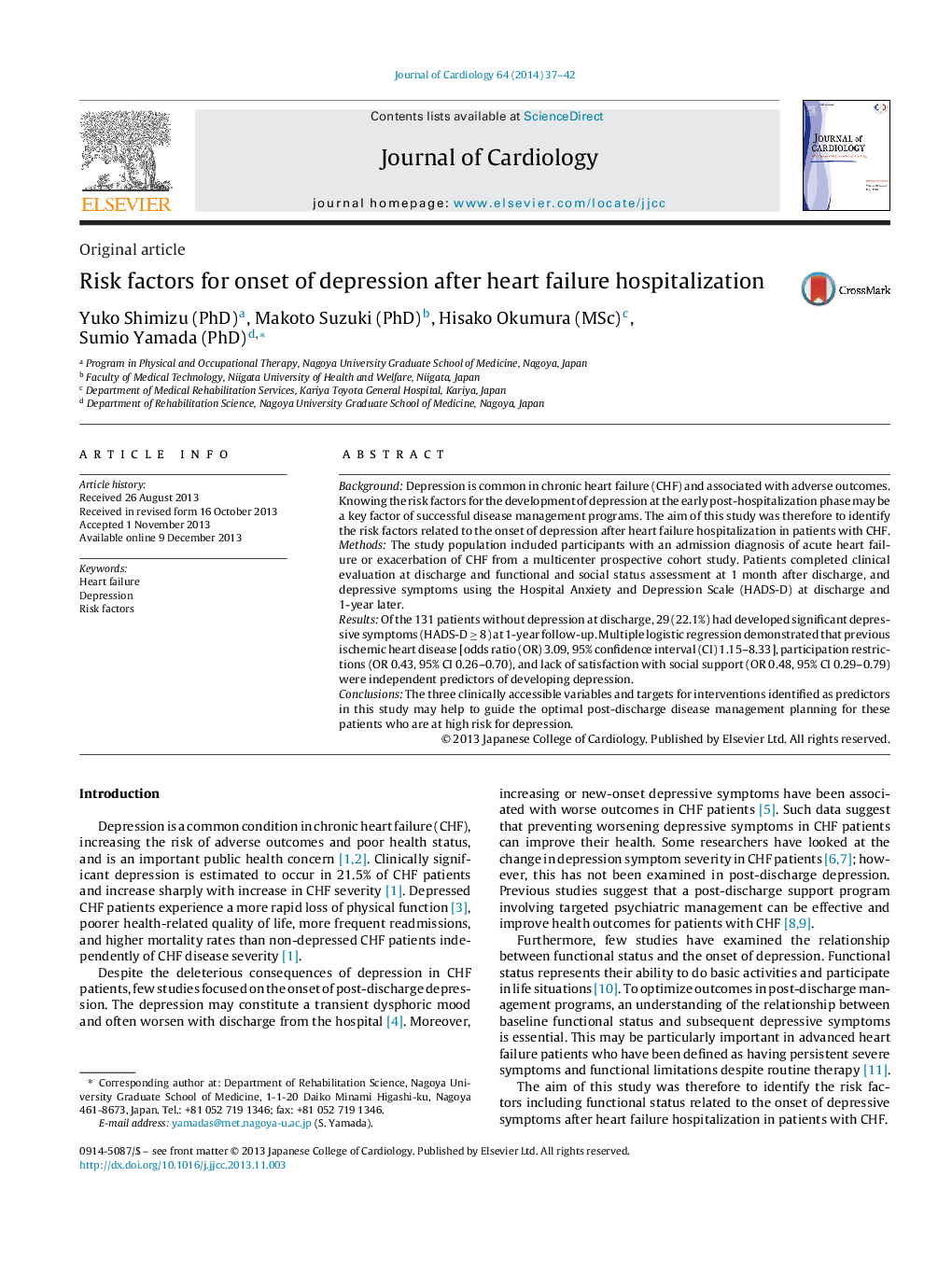| Article ID | Journal | Published Year | Pages | File Type |
|---|---|---|---|---|
| 2963203 | Journal of Cardiology | 2014 | 6 Pages |
BackgroundDepression is common in chronic heart failure (CHF) and associated with adverse outcomes. Knowing the risk factors for the development of depression at the early post-hospitalization phase may be a key factor of successful disease management programs. The aim of this study was therefore to identify the risk factors related to the onset of depression after heart failure hospitalization in patients with CHF.MethodsThe study population included participants with an admission diagnosis of acute heart failure or exacerbation of CHF from a multicenter prospective cohort study. Patients completed clinical evaluation at discharge and functional and social status assessment at 1 month after discharge, and depressive symptoms using the Hospital Anxiety and Depression Scale (HADS-D) at discharge and 1-year later.ResultsOf the 131 patients without depression at discharge, 29 (22.1%) had developed significant depressive symptoms (HADS-D ≥ 8) at 1-year follow-up. Multiple logistic regression demonstrated that previous ischemic heart disease [odds ratio (OR) 3.09, 95% confidence interval (CI) 1.15–8.33], participation restrictions (OR 0.43, 95% CI 0.26–0.70), and lack of satisfaction with social support (OR 0.48, 95% CI 0.29–0.79) were independent predictors of developing depression.ConclusionsThe three clinically accessible variables and targets for interventions identified as predictors in this study may help to guide the optimal post-discharge disease management planning for these patients who are at high risk for depression.
